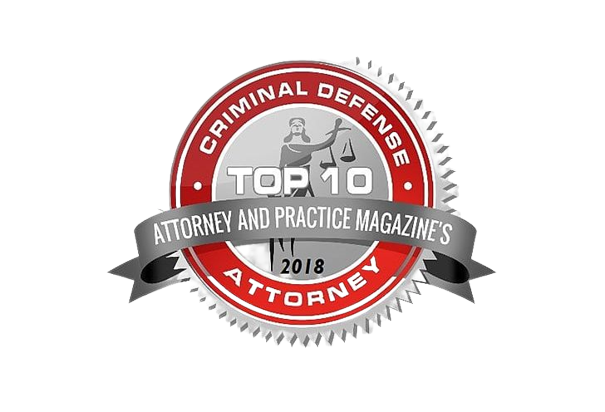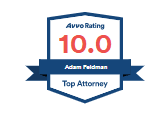Phoenix Assault Lawyer
A Former Prosecutor on Your Side
Home > Assault

2023 Super Lawyers

AV Preeminent Rated

Best Law Firm

A+ BBB Accredited
Are You Facing Assault Charges?
Second to DUI, the most common offense that I see in the criminal courts is assault and assault-related crimes. Even though aggravated assault has decreased in recent years nationally, I see it on a regular basis. If you have been charged with an assault related crime, I am certain that you are terrified about what is going to happen with your case and with your future. Rest assure that you are in the right place. As an assault lawyer I have successfully represented hundreds of clients in assault related offenses, and I can help.
Assault charges come in many different shapes and sizes. The cases can range from misdemeanors that result in community service to dangerous felonies that mandate prison upon a conviction at trial. As an overview, assaults tend to fall into the following categories.
- Misdemeanor Assault
- Causing physical injury
- Causing apprehension of physical injury
- Touching a person with intent to injure, insult or provoke
- Felony Assault
- Causing serious physical injury
- Using a weapon to commit a misdemeanor assault
- Fracturing a bone or causing disfigurement
- Committing a misdemeanor assault on a child
- Committing a misdemeanor assault on law enforcement
- Committing a misdemeanor assault on medical professionals
- Threatening and Intimidating
- Using words or conduct to threaten physical injury or serious property damage
- Using words or conduct to cause serious public inconvenience (i.e. evacuation of building)
- Using words or conduct to threaten physical injury in promotion of a street gang
- Endangerment
- Putting another in substantial risk of immediate death or physical injury
Request Your Free Consultation
Phoenix Assault Attorney- Lawyer Answers Online Legal Questions
Assault Categories:
Defense of Assault
Assaults are unique in the sense that they often carry defenses that can be successfully applied in a trial setting. The most obvious defense to assault is self defense. Equally, a standard defense to an assault related charge is defense of a third party. Below is a list of typical defenses associated with assault related offenses.
- Self-Defense
- This is a legal justification for otherwise illegal conduct.
- The use of force must be immediately necessary to protect one’s self from an imminent attack.
- Self-defense does not require actual danger, only the reasonable perception of danger.
- There is no requirement to retreat prior to using self-defense.
- Defense of a Third Person
- This is a legal justification for otherwise illegal conduct.
- The use of force must be immediately necessary to protect the other person from an imminent attack.
- This defense does not require actual danger, only the reasonable perception of danger.
- There is no requirement to retreat prior to using this defense.
- Defense of Premises
- You are allowed to defend yourself from another when you are in lawful possession of a premise.
- Premises are permanent or temporary residences or lodgings whether occupied or not.
- This is based upon what a reasonable person would do in a similar situation.
- Defense of Property
- You are allowed to defend yourself from another when you are in lawful possession of property.
- This is based upon what a reasonable person would do in a similar situation.
- Use of Force in Crime Prevention
- This is similar to self-defense.
- You are allowed to threaten or use physical force to prevent the following crimes:
- Arson of an occupied structure
- Burglary in the first or second degree
- Kidnapping
- Manslaughter
- First or second degree murder
- Sexual conduct with a minor
- Sexual assault
- Child Molestation
- Armed Robbery
- Aggravated Assault (limited)
Sticks and Stones…
Remember when your mother told you, “Sticks and stones may break your bones but words will never hurt you?” Well, your mother was giving you excellent legal advice. Justifying an assault related offense based upon verbal provocation will never work. It does not matter how insulting the language is. If you assault somebody based upon their vulgar language, you will get in trouble. With that said, sticks and stones can cause serious physical injury so a person is within his/her right to appropriately defense himself from an assault or the immediate threat of an assault.
Award Winning Criminal Defense








Who is Reasonable?
Don’t Bring a Knife to a Fist Fight
Usually, the saying goes, “Don’t bring a knife to a gun fight.” This is still good advice. However, the importance of this section is to understand that the escalation of force will look very unfavorable. If you are in a fist fight with an individual and you decide to end the fight by stabbing the opponent, your actions will likely be considered unreasonable in the given situation.
However, if you are being assaulted by multiple individuals to the point where your believe that they are going to fatally attack beat you up, the use of a knife or gun might be appropriate. No matter what, escalating the level of force with a weapon will always lead to problems.
People try to justify an assault by saying that they are preventing something that might happen in the future. For example, if a guy confronts me and tells me that he is going to find me and beat me up the next time he sees me, I am not allowed to beat him up first to prevent the promised beat down. This should make sense.
The only time you can use the defense justifications is when there is an immediate use of force against you or the threat of force against you.
Criminal Law Firm Near You
Schedule a Consultation



